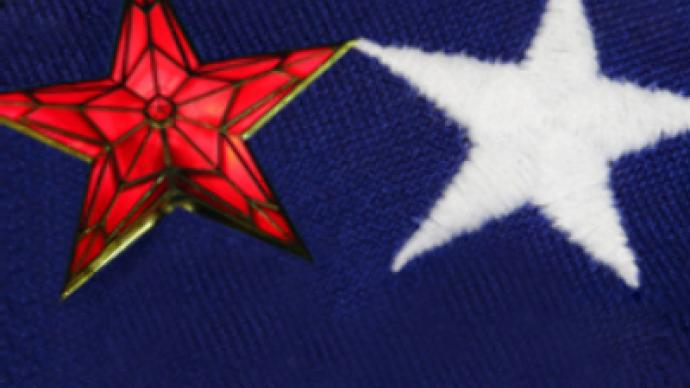Tuesday's Russian Press Review

This Tuesday business matters are again prominent in the front pages of the Russian print Media. The papers also continue the coverage and analysis of the current controversy between Russia and the West over the ‘Five day war’ and the independence of Sout
NEZAVISIMAYA GAZETA warns: industrial production may be in danger. The paper writes that if the government’s crisis-management efforts prove ineffective, the financial crisis will strike at middle-sized and small companies. To the industrial production sector it will bring a real disaster, says the paper. The smaller enterprises tend to be living mainly on short loans, they lack their own means and thus are totally dependent on the banks they deal with. The paper says, the labor situation at those plants and factories may worsen as the owners will have to downsize the work force and lower the wages.
Deputy Chief editor Yulia Petrovskaya writes in the same paper that so far it looks quite unlikely that an international meeting with the aim at normalisation of relations between the key Western players and Russia can happen any time soon. No direct economic sanctions were implemented against Russia, says Petrovskaya, but a trend towards isolating Russia in certain aspects of international relations is evident.
KOMMERSANT says there’s a chance the hunger for executive personnel in the Russian private sector may soon be replaced by plain hunger of the personnel, if the financial crisis doesn’t fade away in the next few months. The paper says it is most probable that the steady rise of wages of the recent years is now at its end. The demand for candidates to fill top manager positions has also started to weaken. If the World crisis has a bigger impact on Russia than it was predicted, the above fears will turn into bitter reality, says the article.
ROSSIYSKAYA GAZETA publishes a column by Nikolay Zlobin of the Washington-based World Security Institute who writes that the current World situation, both political and economic, presents a lot of challenges and dangers but also creates opportunities for a further economic breakthrough. He says the big countries have been preparing for a very different type of conflict of interests. Now they understand that they are tied up with a multitude of local conflicts and so they have to amend their strategies but the forces of inertia are too strong to make the changes fast. Spontaneous action becomes a necessity. Zlobin writes: ‘American improvisations in international politics collide with Russian and European improvisations, finally pushing the share of impromptu actions in the World politics to dangerous levels. In the economy, continues Zlobin, both the U.S. and Russia are building their counter-crisis measures on the State support of major banks, first of all the banks owned by the governments. He says government control over the economy is a necessity in times of crisis. Without it the economy cannot weather the crisis and accumulate enough energy for a breakthrough at the end of the crisis. On the other hand, he writes, it is important for the government to define the optimal moment to release the controls and leave the economy alone after the crisis.
KOMSOMOLSKAYA PRAVDA writes that apart from all the anti-crisis steps taken or promised by the government, Russia has in its arsenal a totally unbeatable and readily available weapon: its cold winter. They say, writes the paper, this year’s winter is going to be severely cold. That would mean higher demand for oil and, as a result, higher oil prices.
VEDOMOSTI writes, based on opinion surveys conducted in Europe and the U.S., that in these parts of the World they started fearing Russia again, very much the way it used to be during the Cold war. Russia is more feared than Iran but less feared than China, says the paper.
IZVESTIA writes under the headline ‘Europe stopped singing in tune with Bush’: unlike George Bush who spoke in his UN General Assembly speech of Russia’s ‘violation of the UN Charter’ during the Georgia-South Ossetia conflict, President Nicholas Sarkozy of France representing the European Union, spoke of the necessity of partnership between Russia and the EU.
VREMYA NOVOSTEI says, if someone is really capable of preventing US-Russian relations from hitting the bottom, it’s the two countries’ military. Petr Iskanderov writes that top executives of the Pentagon are confirming their intention to continue bilateral military dialogue while the Secretary of State Condoleeza Rice is using strong rhetoric against Russia on the unprecedented scale. The article says, it has always been the case: two generals always understand each other better than two politicians. The article quotes Nikolai Zlobin from the World Security Institute in Washington who says: in the past few years defense officials of Russia and the U.S. demonstrated their ability to agree among themselves quite often – much more often than the politicians. Actually, big problems came into existence every time when the politicians took over the negotiations.’












